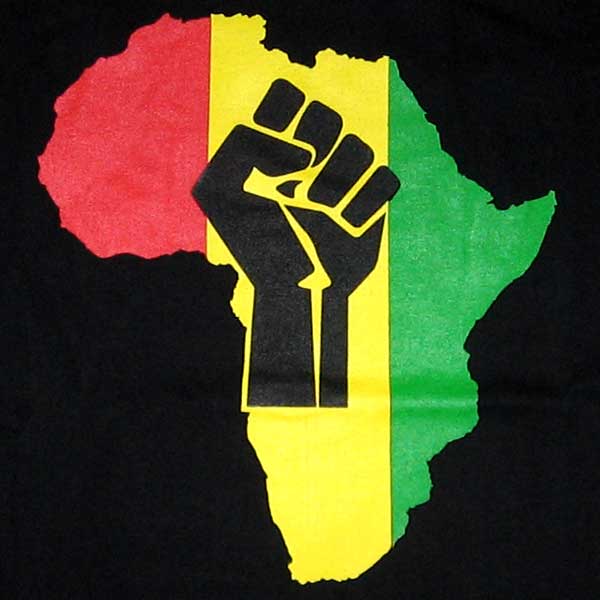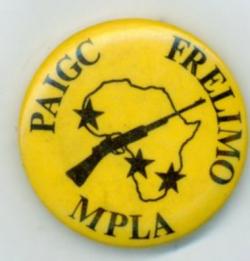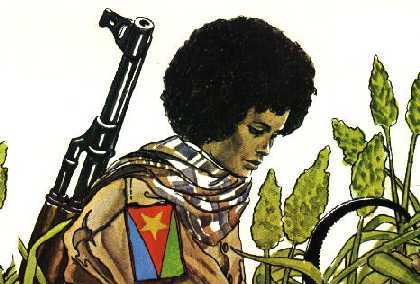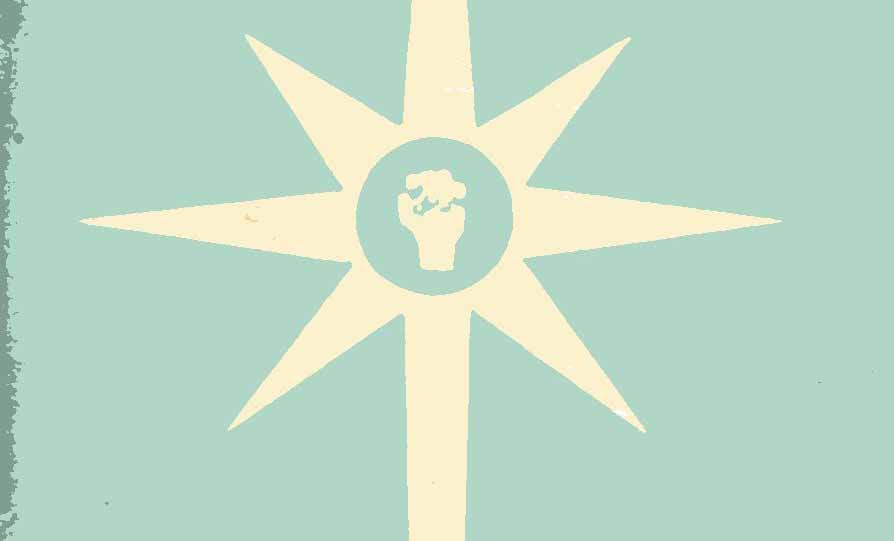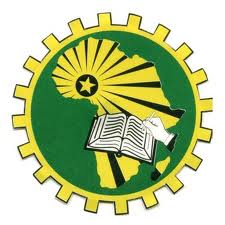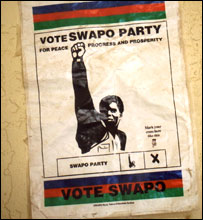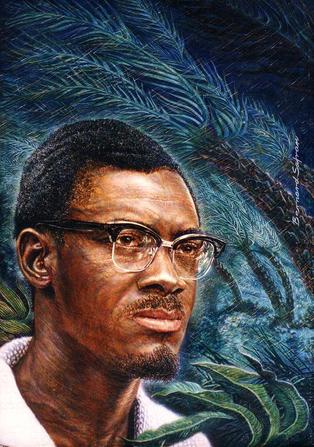African liberation movements
African liberation movements arose from a growing nationalism among previously divided African communities, the unfulfilled promise of self-determination following the end of World War II and the weakened economic and political capacities of Western Europe.
Our collection contains a wide range of materials representing liberation movements from Zimbabwe, South Africa, Namibia, Mozambique, Angola, Guinea-Bissau, Eritrea, and the Congo (DRC). Our collection also features containing Human Rights Reports from South Africa, IKWEZI, a revolutionary Azanian journal, and a sub-collection containing general resources about the continent. This collection includes audio and paper materials.
Strengths of the collection include materials on the role of women in African liberation struggles and national reconstruction, an interesting assortment of periodicals from Southern Africa, speeches and interviews with revolutionary leaders from across the continent, audio from solidarity events in the United States, and a set of human rights reports compiled during the transition from Apartheid to democracy in South Africa.
Our collection contains a wide range of materials representing liberation movements from Zimbabwe, South Africa, Namibia, Mozambique, Angola, Guinea-Bissau, Eritrea, and the Congo (DRC). Our collection also features containing Human Rights Reports from South Africa, IKWEZI, a revolutionary Azanian journal, and a sub-collection containing general resources about the continent. This collection includes audio and paper materials.
Strengths of the collection include materials on the role of women in African liberation struggles and national reconstruction, an interesting assortment of periodicals from Southern Africa, speeches and interviews with revolutionary leaders from across the continent, audio from solidarity events in the United States, and a set of human rights reports compiled during the transition from Apartheid to democracy in South Africa.
Subcollections
-
Africa- General Resources
This collection contains general resources about various themes related to the African continent. The collection draws from many types of materials (periodicals, books, pamphlets) and many different countries (Kenya, Guinea, Tanzania). -
Angola, Guinea-Bissau and Mozambique
This collection contains materials from the liberation struggles in former Portuguese colonies. Guinea Bissau gained independence in 1973 and Mozambique and Angola achieved independence in 1975. -
Anti-Apartheid Solidarity
This collection contains materials from Bay Area anti-apartheid movements of the 1980s originating from various sources, primarily Bay Area-based South African solidarity groups. -
Eritrea
Eritrea is located in the Horn of Africa. It gained its independence from Ethiopia in 1991 after a 30 year struggle for independence. -
IKWEZI
IKWEZI is a revolutionary Azanian Journal based on Marxism-Leninism-Mao Tsetung Thought. -
South Africa
This collection contains a variety of materials which focus on the anti-apartheid movement both within and outside of South Africa. -
South Africa: Human Rights Reports
The Human Rights Commission published weekly, monthly and annual reports. In addition, occasional in-depth special reports were published on important human rights issues. -
SWAPO- Namibia
SWAPO (Southwest Africa Peoples Organization) was formed in 1960 to fight for liberation in present day Namibia. Namibia gained independence from South Africa in 1990. -
Zaire-DRC
This collection contains materials from the Congolese struggle against neocolonialism and the rule of General Mobuto Sese Seko. -
Zimbabwe
This collection contains information about the liberation struggle in Zimbabwe, mainly focused on the struggle against Rhodesia and white settler rule.
Documents
Nangula Hamutenya, Department officer and Regional secretary for information and political orientation for SWAPO (South West African People’s Organization) Women’s Council, speaks about the creation of the women’s council as one of SWAPO’s wings to reflect all of Zambia. She stresses that the SWAPO women’s council is against inequality, and for the active participation of women in the struggle for liberation. She talks about the council’s goals to organize the women of Namibia and to take care of the refugee women and children. She calls on women all over the world to fight with other women for their rights. Aaron Mushimba, chief representative for SWAPO at the Lusaka, Zambia office, talks about the attacks by the South African government on liberation struggles in Namibia, Zambia, and Angola. He emphasizes that SWAPO freedom fighters receive ideological and military training in helping the Namibian struggle, and also mentions that women freedom fighters are equal in all respects, except some of the tougher military training.
Call Number: AFR 038Format: Cass A & BProducers: WBAIProgram: WBAI African Liberation Day Special ProgramCollection: Africa- General Resources
A radio phone interview of African Historians and discussion of African leadership. Shelton Walden of WBAI New York interviews Historian John Henrik Clarke and other historians on the African Liberation Day Special radio broadcast. The historians talk about the mentality of leadership in Africa, the forces influencing the leaders, the dangers leaders face, and the avenues they should take to reconnect with the African people in unity.
Call Number: AFR 041Format: Cass A & BProducers: WBAIProgram: WBAI African Liberation Day Special ProgramCollection: Africa- General Resources
Continuation of AFR 040
The continued discussion of the African tradition and history. Historian John Henrik Clarke and Professors Dr. Molefi Kete Asante and Dr. Horace Campbell talk about the meaning of African liberation in Africa. They speak about the lack of respect for women and street children in their efforts and contributions toward African liberation. They also talk about Afrocentricity, a theory that African people must be viewed as agents in the world, not just spectators of Europe.
Judy Jensen of the Material Aid Campaign for ZANU makes a speech about Southern Africa. She speaks about ZANU’s defeat of white settler colonialism in Zimbabwe and also women’s contributions to the struggle. She discusses the different fronts in the war for the liberation of Southern Africa, and the struggle against the US’s attack on their independence. She talks about struggles in Namibia, South Africa’s control over Southern African countries, and calls for solidarity with Southern African countries. Lastly, she draws comparisons and similarities between the oppression of blacks in America and Africa. Next, Serge Mukendi, US Representative of the Workers and Peasants Movement of the Congo (MOP), speaks about weaknesses in natural and human resources in Africa because they are not in the hands of the Africans. He speaks about the struggles in Congo and tells the audience that it is our duty to strengthen the fight for liberation in Congo through support and solidarity.
On Side B, Eve Rosahn, political activist, Students Against Government Misconduct, speaks about political activists for black liberation who have been tortured and beaten for their actions. Next, a member of the Anti-Springbok 5 chants “Up With Azania, Down With South Africa!”, and speaks about her experiences as an ASB-5, and tells the audience about the Springbok 5 and what they represent. The Springboks are an elite white supremacist South African rugby team traveling the US, representing the spread of white imperialism. Lastly, PAC (Pan African Congress) representative Jackie Mazibuko, speaks about white alliances between Ian Smith of Zimbabwe, the South African government, and the US in their oppression of black Africans. She also speaks about the land issues in Africa, and that all land originally, and still should, belong to black Africans, and that people must have the ideology of revolution to struggle against oppression.
Judy Jensen of the Material Aid Campaign for ZANU (Zimbabwe African National Union) interviews PAC (Pan African Congress) chairman Pokela about the PAC campaigns in South African townships and cities. He speaks about how the PAC insists on conducting an armed struggle and guerilla warfare, and also that Gatsha Buthelezi is an independent and not the voice of PAC, although he is a member. Pokela speaks about the Soweto Uprisings. He talks about how one must go back into the history of Soweto to understand the significance of the uprisings, and how Africans can achieve their own independence, and their own rights. He talks about how the Soweto Uprising campaign is similar to PAC campaign, and then speaks about workers’ rights and job conditions.
Side B is a continuation of Side A
PAC Chairman Pokela speaks about unification between the PAC and Black Consciousness Movements, thereby uniting the people internally. He speaks about the need for all Africans to be united, and speaks about how other African countries such as Algeria, Angola, and Mozambique have been good examples for black South Africans. He speaks about the possible involvement of women in the PAC. Lastly, he says that Nationalism, Pan Africanism, and Socialism are central to the PAC.
Interview with a representative of FLNC (Congolese National Liberation Front). He speaks on conditions in Congo, and revolutionary organizations, as well as the threat of outside influences on the organizations. Speaks about the role of the proletariat, and how they are exploited in third world countries but are key to the FLNC. The struggle continues, he says, and it is an international problem, which requires an international solution and cooperation between countries. Speaks about fighting against Sese Seko Mobutu in Congo, and lastly speaks about supporting Angola, SWAPO (Southwest African People’s Organization), Namibia, and South Africa - “their struggle is our struggle”.
On Side B, the interviewer speaks about the FLNC, and understanding the United States government’s influence on Mobutu and in Congo.
Radio News Program on the independence of Angola.
About the newly won independence of Angola (11/11/1975), ending violence between the Angolan people and their Portuguese colonizers. The MPLA (Popular Movement for the Liberation of Angola) is recognized for its strong Leadership of the struggle for independence.
Augustino Neto, leader of the FNLA (National Front for the LIberation of Angola) and UNITA (National Union for the Total Independence of Angola - led by Jonas Savimbi). He speaks about the cooperation he saw between the different African countries, and celebrates Angolan independence.
Also discussed are the problems in Rwanda between the different racial groups and the negotiations among colonizers and the people of Rwanda.
Also various people speak about Vietnam, Chile, and world events.
Date: 1/3/1976Call Number: AFR 084Format: Cass A & BProducers: KPFAProgram: Nothing Is More Precious Than... ProgramCollection: Angola, Guinea-Bissau and Mozambique
Poetry and revolutionary Angolan music.
Wounded Knee Massacre and countless atrocities against Native Americans.
Talk given by Steve Talbot discussing the state of Angola after its independence from Portugal. The history is given of the three struggling liberation movements: MPLA (Popular Movement for the Liberation of Angola), FNLA (National Front for the Liberation of Angola), and UNITA (National Union for the Total Independence of Angola) . With discussion of Cuban and Soviet support of MPLA as well as Chinese support of FNLA. U.S. involvement through funneling money to the Mobutu government of Zaire and factions in South Africa.
Note: About three minutes at the end of this tape contain an interview with Pablo Martinez discussing his exit from rock and roll.
Publisher: Southern Africa Organizing CommitteeYear: 1980Volume Number: Vol. 1 No. 4 OctoberFormat: PeriodicalCollection: SWAPO- Namibia
Contents include: Namibia- the last colony; Angola under Attack- South African troops, US Maneuvers; Resist Draft Registration- Oppose US Intervention; Cuba Update; Reconstruction in Zimbabwe

